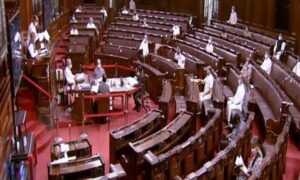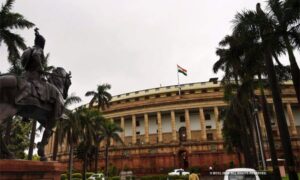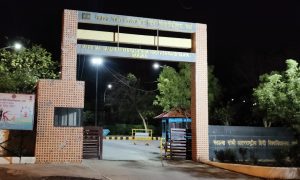Three legislations pertaining to the agriculture sector were cleared by the Lower House of the Parliament during the Monsoon Session of the Parliament on Thursday. These seek to replace the ordinances promulgated by the government once they are passed by the Rajya Sabha as well.
However, the move pitted the government against the opposition and strained the ruling party Bharatiya Janata Party’s (BJP’s) coalition with Punjab’s Shiromani Akali Dal (SAD). Opposing the move, SAD’s only representative in the Modi government, former union minister Harsimrat Kaur Badal, tendered her resignation from the Union Council of Ministers and alleged that the legislations were “anti-farmer” which will destroy the agriculture sector in Punjab.
What are these legislations?
Farmer’s Produce Trade and Commerce (Promotion and Facilitation) Bill, 2020
Although farmers are protesting against all three Bills, it’s the provisions of the first one that particularly bother them. The Bill aims to create an ecosystem which allows farmers to trade their produce outside the markets or ‘mandis’ notified under the various state agricultural produce market laws (state APMC Acts). It also allows ‘barrier-free’ intra-state and inter-state trade of farmers’ produce outside state APMCs. The legislation, which stands to face scrutiny in Rajya Sabha before becoming law, is also aimed at reducing marketing or transportation costs in order to help farmers fetch better prices. It also seeks to create an electronic trading mechanism for farmers.
The states oppose the legislation as they stand to lose ‘mandi fees’ if farmers are allowed to trade outside designated state AMPC-approved mandis or trade areas. The Bill’s wordings, in effect, leave out state APMC-designated areas, from “trade area” as defined under the legislation.
The fate of ‘commission agents’ or arhatiyas also remains unclear when the entire farm trade moves out of state-designated mandis. The protestors say this will limit APMC’s reach and give a free hand to big corporates. The arhatiyas system is quite prevalent in Punjab and Haryana and therefore a majority of protests are centred in these regions.
The Farmers (Empowerment and Protection) Agreement on Price Assurance and Farm Services Bill, 2020
The provisions of the Bill allow farmers to enter into contracts with agribusiness firms laying down the groundwork for a new system of contract farming in India. It allows farmers to sell their produce to such firms, processors, wholesalers, exporters, or large retailers at a future date at a pre-agreed price. The Bill aims to shift the burden of risk and unpredictability from small and marginal farmers who own less than 5 hectares to agribusinesses. Its aim is to get farmers access to modern technologies and the reduce cost of farming – and thereby boost farmer incomes.
The protestors argue that the mechanism will weaken the hand of mostly uneducated farmers during negotiations with suave cash-rich corporates.
The Essential Commodities (Amendment) Bill, 2020
Its provisions aim to remove cereals, pulses, oilseeds, onions and potatoes from the list of essential commodities. It aims to curb the stockholding of these essential items unless special circumstances such as war warrant it. This provisions of the Bill is aimed at luring private sector and bring foreign direct investment as the regulatory intervention is reduced. This will help create a competitive environment and modernise farm supply chain by the introduction of cold storages, the government says.
Protestors argue that the Bill will allow private companies to stockpile these commodities giving them the leverage to dictate price terms to farmers.




























 WhatsApp us
WhatsApp us
Pingback: pk789